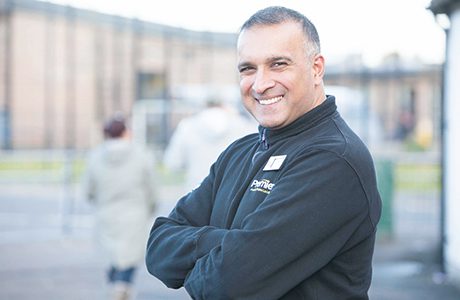PayPoint says ‘Let’s talk’ but refuses to move on commission cuts as profit jumps 9%

But it has refused to make any changes to the new regime of charges and commissions it introduced last month, which reduced the maximum a retailer receives for general bill payments by 23% from 13p to 10p and cut the maximum amount received for pre-pay energy transactions by 30% from 10p to 7p.
Many retailers have told Scottish Grocer that the cost of banking the cash collected on behalf of PayPoint means their retail businesses are losing money to work on behalf of the services firm.
PayPoint marketing director Steve O’Neill, speaking to Scottish Grocer, said the firm’s service isn’t only about commission but that it also provides value to retailers by encouraging footfall in retail outlets. The firm also says that its new commissions are still higher than those offered by competitors and that its payment cuts are required because it is in a very competitive market and is making substantial investments in technology.
He also said that the firm was committed to making PayPoint work well for its retailers and stressed that reps would now explore on a case-by-case basis the benefits for stores in having self-fill ATMs, simple payment benefits service, net payment systems and other possibilities.
He said the firm would also try to share information about what the firm says are the many retailers who derive significant benefits from PayPoint.

But many retailers are likely to be difficult to persuade. Opinions expressed to Scottish Grocer on the new PayPoint fees system have ranged from critical to furious.
Mohammed Saeed, an independent retailer in Duns, in the Borders said: “I’ve been saying for years they’ve been using us.
“It doesn’t bring any footfall to the shop. Every PayPoint retailer should switch the machine off for a week and should say we want this much commission or take your machine away.”
Mohammed Jamil of Day-Today in Renfrew High Street said:
“For me the majority of PayPoint customers are PayPoint only. They come here because they don’t want to queue at the bank.
“If I take payment for a big bill of £200 or £300 it’s costing me 35p per £100 to bank it and I get 7p.
“I’m really thinking of getting rid of it.
Wasim Ashiq of Keystore in Coldstream said: “Shopkeepers should stick together on this. I’m 100% sure that I am losing money out of PayPoint.
“This means I’m working for PayPoint… that’s fine, so pay me a salary.”
Aberdeen retailer Graeme Knowles, who left PayPoint since taking in Post Office last year is happy not to be involved.
“I don’t think PayPoint is a viable proposition for a retailer at all nowadays,” he said.
Major multiple symbol store retailer Harris Aslam who has stores in Fife and Central Scotland said: “We do turn over a significant amount of money on PayPoint, but at a certain point we have to look at our bottom line and ask ourselves if it’s really a viable service.
“If it’s costing us money and not delivering anything in return then we need to scrap the service. So we have to evaluate exactly how much extra footfall it does bring into the stores, which is not easy to do.”
Ayrshire retailer Jagtar Lalli said: “While it was £13 I was losing just over £100 a month. My bank charge is £300, but my commission was only £200. Now I’ve worked it out and it’s an extra £15 a week. That’s an extra £60 I need to pay to the bank every month. But people are not coming in.
“I’d say that for every 10 people who come in to use PayPoint, at the most two will buy something while they’re in.
Premier and Family Shopper retailer Mo Razzaq, Scottish president of the National Federation of Retail Newsagents, has been a leading critic of PayPoint’s commission cap cuts. He said the company’s suggestions weren’t relevant to most retailers.
He won’t take part in machine turning-off protests because he thinks that would simply inconvenience consumers. He has contacted first minister Nicola Sturgeon and will contact MSPs and MPs to alert government departments who commission payment services to the current issues.




















